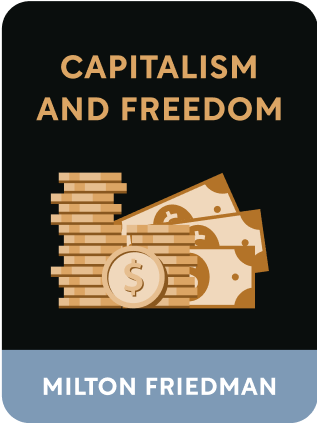

This article is an excerpt from the Shortform book guide to "Capitalism and Freedom" by Milton Friedman. Shortform has the world's best summaries and analyses of books you should be reading.
Like this article? Sign up for a free trial here .
What is the neighborhood effect? Why is government involved in lessening negative neighborhood effects?
The neighborhood effect is when one person’s economic activity imposes a cost on another individual. There are both positive and negative neighborhood effects.
Read more about the neighborhood effect and how it works.
The Neighborhood Effect: Positive and Negative
Governments also have a responsibility to promote positive neighborhood effects and prevent negative neighborhood effects.
Negative neighborhood effects (also known as externalities) arise when one individual’s economic activity imposes a cost on another individual for which the former is unable to compensate the latter.
The classic example is of a private company polluting a community water source. The individuals whose water is poisoned have no practical way to avoid participating in this forced “transaction” or of receiving compensation for the costs they’ve incurred outside of government action (either through legislation or lawsuit). Therefore, government regulation of negative externalities (in this case anti-pollution laws) is appropriate and consistent with the preservation of economic freedom.
Positive neighborhood effects, meanwhile, arise when some individual economic activity confers benefits upon individuals whom it is extremely difficult to charge for their receipt of such benefits. A good example is local parks. People who regularly walk through such parks, have views of them from their homes, or just happen to pass by them can reasonably be said to receive a benefit from them.
But because the benefits of these local parks are so widely dispersed and difficult to assign a true “value” to, it would be infeasible and inefficient for a private owner of such a park to charge fees to everyone who derives enjoyment from them. Therefore, the public sector can more efficiently provide goods like local parks that confer widespread positive neighborhood effects.
The same cannot be said, however, of national parks like Yellowstone or Yosemite. These parks have few entrance points, are in remote locations, attract visitors from all over the country, and host visitors for long periods of time. It is much easier, therefore, to determine precisely who is benefitting from them.
In a capitalist society, therefore, there is no reason for goods like national parks—which provide discrete benefits to a relative handful of people—to be publicly subsidized by taxpayers, the great majority of whom will never use them. Instead, private operators should run such parks and charge fees only to those who choose to use them.

———End of Preview———
Like what you just read? Read the rest of the world's best book summary and analysis of Milton Friedman's "Capitalism and Freedom" at Shortform .
Here's what you'll find in our full Capitalism and Freedom summary :
- The key principles from Milton Friedman's Nobel Prize-winning book
- Why capitalism functions best when it is freed from government restraints
- How forced redistribution schemes are morally unjust






